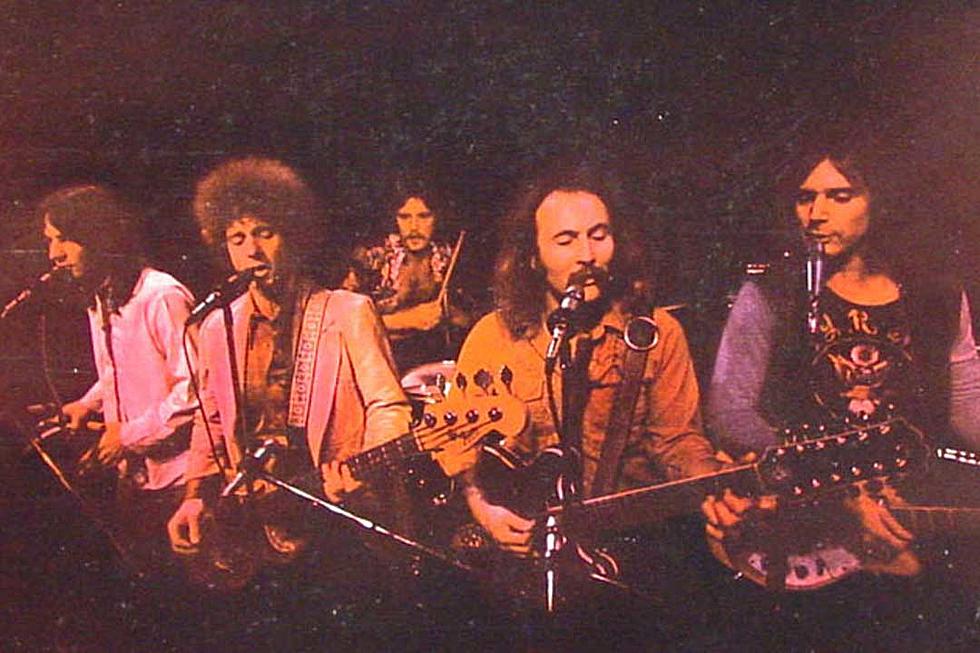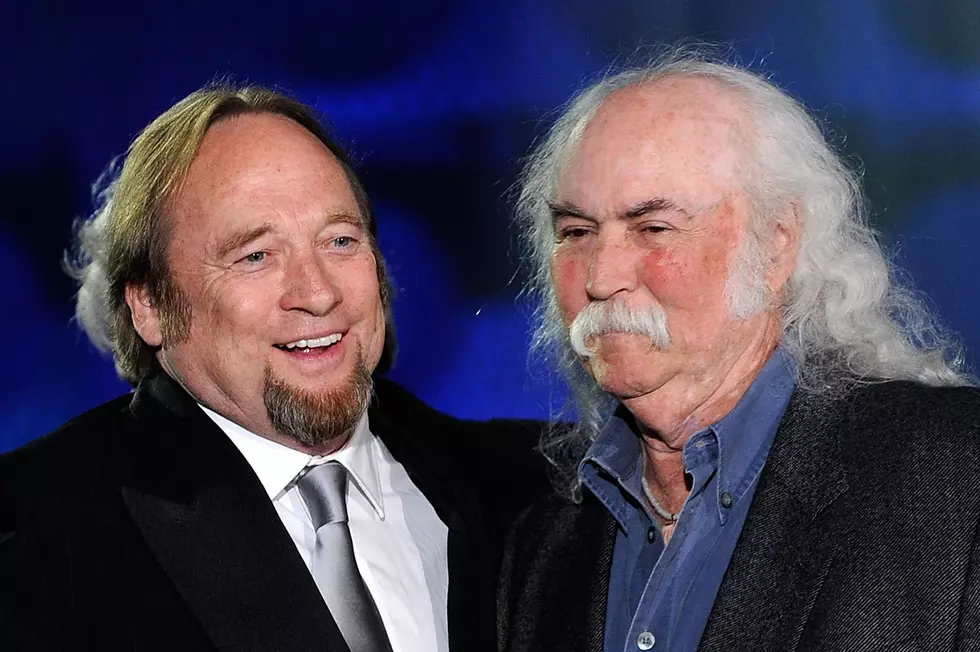
46 Years Ago: David Crosby Fired from the Byrds
The Laurel Canyon sound of the '60s and '70s was all about smooth harmonies and peaceful, easy feelings, but the bands making the music were notorious for their constantly shifting lineups and behind-the-scenes turmoil. Case in point: the Byrds, who announced founding member David Crosby's acrimonious firing 46 years ago.
Of course, now that we have the benefit of 45 years of Crosby, Stills & Nash to look back on, Crosby's firing from the Byrds doesn't seem so bad; in fact, during an interview with Uncut, he admitted, "it was, for me, obviously much better that I left." At the time, however, it acted as an ugly reminder of the outsized egos that often powered those high California harmonies.
The Byrds had only been together for a few years when the founding members' volatile personalities started to clash, and by the late summer of '67, Crosby was clearly the odd man out -- evidenced by his bandmates' hostile reaction to his between-song rambling during their performance at the Monterey Pop Festival, a situation not helped by the poor performance of the subsequent Crosby-penned single, 'Lady Friend.'
Sessions for the band's next album, 'The Notorious Byrd Brothers,' were a disaster, with drummer Michael Clarke quitting and Crosby refusing to lend his vocals to a cover of Gerry Goffin and Carole King's 'Goin' Back.' By the fall, it was all over but the firing -- an experience Crosby recalled in 1980 by saying that frontman Roger McGuinn and bassist Chris Hillman "came zooming up in their Porsches and said that I was impossible to work with and I wasn't very good anyway and they'd do better without me. And frankly, I've been laughing ever since. F--- 'em. But it hurt like hell. I didn't try to reason with them. I just said, 'it's a shameful waste ... goodbye.'"
Hillman weighed in on their conflict by saying, "David just had this knack for causing trouble. ... He was an extrovert and had a lot of guts -- which sometimes meant he could be an arrogant jerk." In a later interview, he elaborated, "If anybody threatened him or he perceived it as a threat, he would lash out. And David Crosby was lucky that none of us popped him. He was really asking for it. It was the most different set of people with diverse backgrounds you could find, that was the five of us."
McGuinn offered his take in a separate interview, saying, "He just wasn't making it, man. He's a great talent, you know, and a nice cat -- I like him -- but he was getting a little too big for his britches, you know, trying to rule the machine, you know; getting hard to work with. So it was by mutual consent, like the three remaining Byrds got together and decided that it would be better if he wasn't around anymore."
Crosby and Clarke's departures kicked off a period of revolving lineups for the Byrds, but the original lineup was persuaded to reunite in 1972 the old-fashioned way -- with lots of money. The result, 1973's 'Byrds' album, was greeted by lukewarm reviews and dashed plans for a tour, and the band split up again. Over the years, various original members have returned to the band's material in assorted configurations, sometimes prompting further battles in the press and in the courts, but the founding members managed to set their differences aside long enough to accept their induction into the Rock and Roll Hall of Fame in 1991.
Sadly, that would mark their final appearance together as a five-piece -- guitarist Gene Clark passed away in May of 1991 at the age of 46, with Clarke following in December 1993 at 47 -- but Crosby, McGuinn, and Hillman joined together again at a 2000 benefit performance, sparking hopes that there might be yet another chapter in the band's long history.
According to Crosby, he's never lost the desire to continue on with the Byrds. "With all three of us alive and still very good at what we do, I would happily fly wingman to Roger with Chris, with whom I am friends, and make some more music," he explained to Uncut. "Roger has said repeatedly -- because I have asked him repeatedly -- that he doesn’t want to do that. I’m sorry he doesn’t."
More From Ultimate Classic Rock









